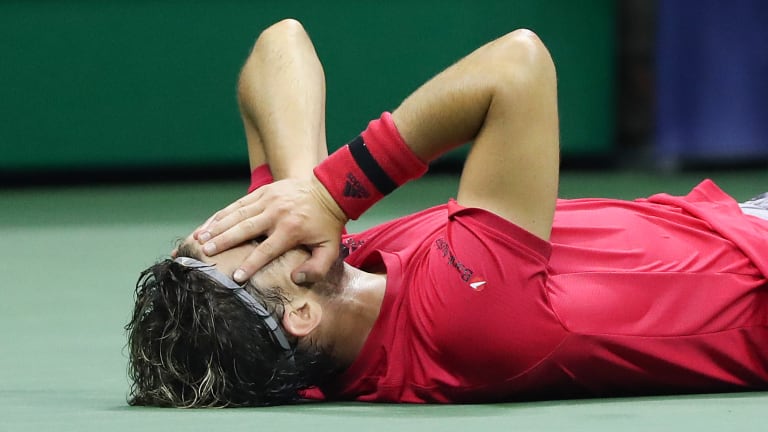US Open
Top Moments of 2020: Thiem wins first Slam, breaks Big 3 stranglehold
By Dec 16, 2020US Open
Beyond The Champions: 2025 US Open Winners and Losers
By Sep 10, 2025US Open
In US Open defeat, Jannik Sinner faces his shortcomings
By Sep 09, 2025US Open
Amanda Anisimova's US Open fortnight wasn't just "incredible"—it was redemptive
By Sep 09, 2025US Open
Overcoming Doubt, Finding Deliverance: Six WTA takeaways from the 2025 US Open
By Sep 08, 2025US Open
Service and a smile: How Carlos Alcaraz conquered Jannik Sinner at the 2025 US Open
By Sep 08, 2025US Open
Carlos Alcaraz captures sixth Slam and second US Open title, dethrones No. 1 Jannik Sinner
By Sep 07, 2025US Open
Alcaraz vs. Sinner US Open final start delayed by 30 minutes
By Sep 07, 2025US Open
Blinding Lights: Amanda Anisimova rues missed opportunities, serve woes after US Open final
By Sep 07, 2025US Open
Aryna Sabalenka has been No. 1 all year — after winning US Open, now she’s back on top, too
By Sep 07, 2025Top Moments of 2020: Thiem wins first Slam, breaks Big 3 stranglehold
It took a pandemic, forcing Nadal to skip the event; a second right knee surgery for Federer, sidelining him for the rest of the season; a default of top seed Djokovic; and a a fifth-set tiebreaker.
Published Dec 16, 2020
Advertising

Top Moments of 2020: Thiem wins first Slam, breaks Big 3 stranglehold
© Getty Images